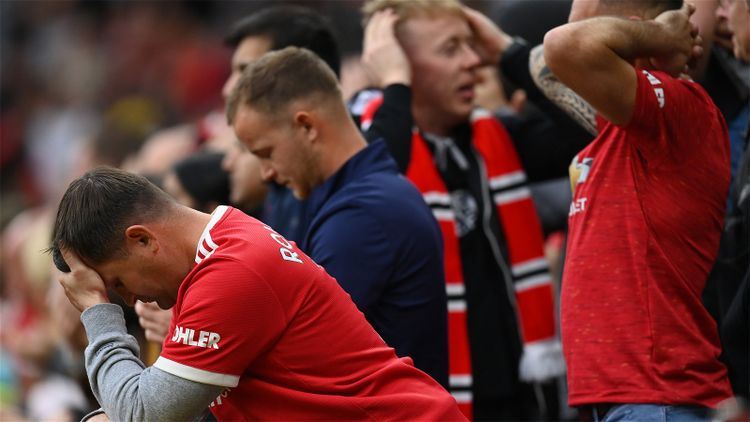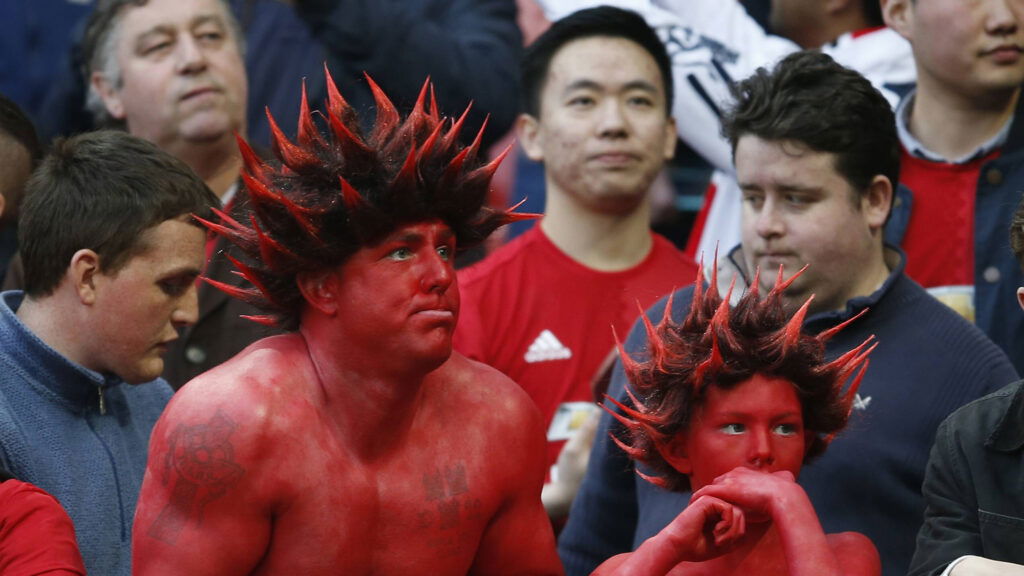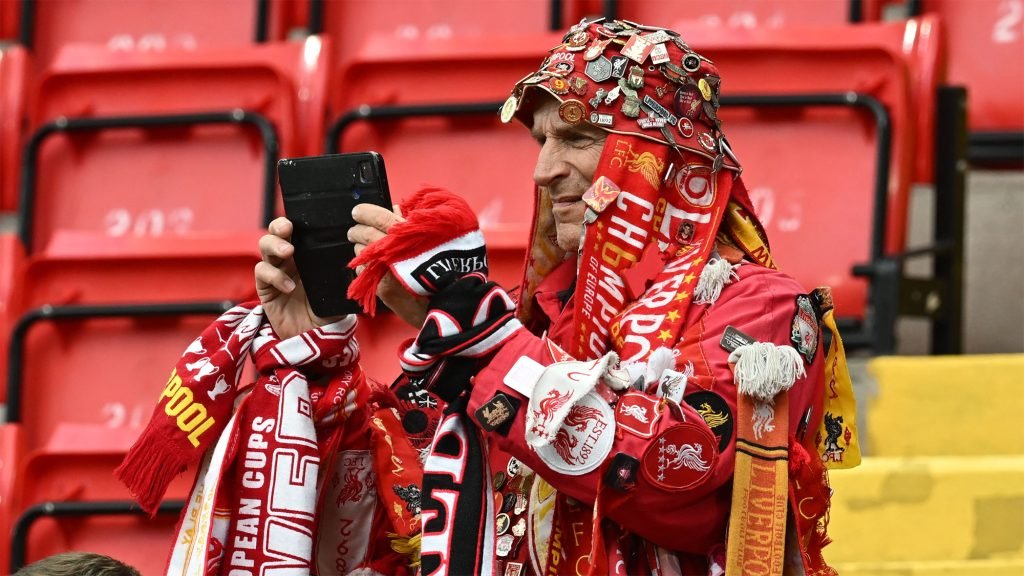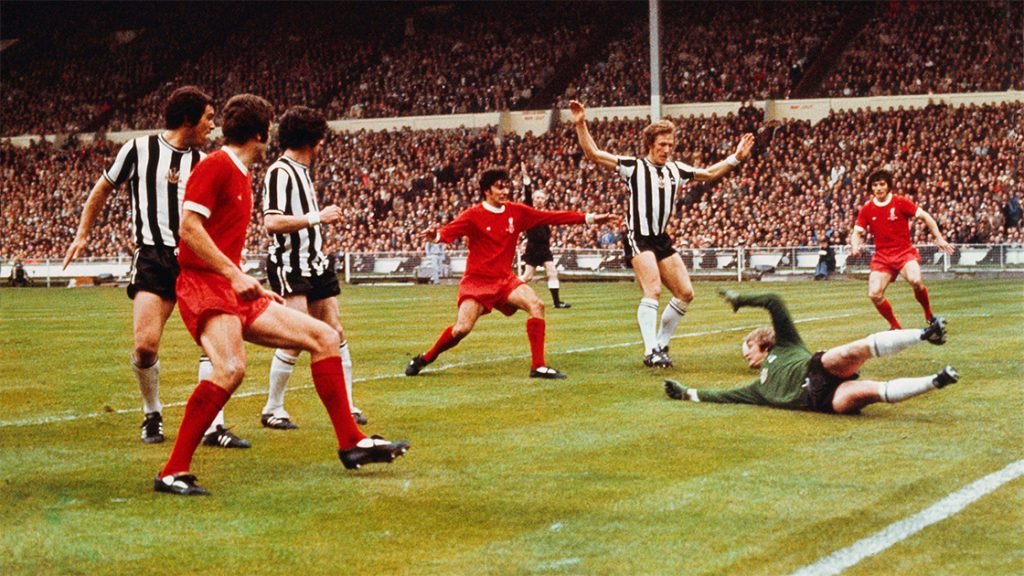Liverpool, Newcastle United and Manchester United fans the truth

Monday night football has never been my cup of tea.
I assume that most of the individuals who are reading this have similar thoughts and feelings.

This is a time that falls somewhere in between the weekend and the middle of the week. It's a day (or night) when many of us return to work and definitely not an appropriate time for Premier League soccer.
Many German football enthusiasts stood up against the decision of the Bundesliga to shift only a few league matches to Monday evenings. Nonetheless, in contrast, supporters of the Premier League have been accepting this norm for many years now.
In my opinion, Monday night football is terrible. However, I am only expressing this viewpoint from the perspective of the traditional fans who physically attend the games.
Nonetheless, tuning in to watch Monday night football matches that don't showcase Newcastle United can sometimes present some truly magnificent moments. As we become a part of the television audience, residing in our living spaces, we are subjected to these striking scenes.
Yesterday evening was one of those times.
Manchester United supporters witnessed their struggling coach and a team that didn't seem to give their all, suffer a crushing 4-0 loss at Selhurst Park. The fact that Palace didn't score more goals against them was only due to their mercy as they easily could have scored seven or even eight times.
Regardless, even though I found the commentary amusing like everyone else, there was one specific thing that annoyed me.
When Crystal Palace managed to score their fourth goal, there was a wave of compassion for the fans of Manchester United. Someone even left a comment mentioning how "They've had a rough time this season."
To me, it seemed like another instance of how the current state of things is incredibly abnormal and how biased the news reporting is.
The way the media covers different clubs and their fans varies greatly. Some believe that certain clubs and their supporters have a special entitlement to success.
Let me put it this way, if you were to ask supporters of every football club in the UK, would they accept finishing in the top eight of the Premier League at worst AND having the chance to compete in the FA Cup final, what do you think they would say?
It's understandable that fans of lower-ranked clubs may not sympathize with Manchester United fans if their team gets relegated. Clubs like Luton, Burnley, Sheffield United, Forest, and Everton are also at risk of facing the same fate. This is due to the unfair PSR restrictions that were imposed by the 'big' six clubs, who are reluctant to share the spoils of success with anyone else. As a result, other clubs are left vying for a place at the top table without much hope of ever being able to participate.

Although many other supporters from numerous clubs could take part in this discussion, I prefer to focus solely on the media and three specific clubs with their respective fan communities.
As per what's mentioned on Sky Sports, it seems like we're expected to sympathize with this group.
They are experiencing the disappointment of backing a team that may, for the first time during the Premier League period, end up in eighth place, which would be considered a significant setback.
Upon further review, the last time Manchester United did not finish in the top seven of the Premier League was during the 1989/90 season, when they ultimately placed 13th in the final standings.
Looking back even further, Manchester United fans haven't witnessed their team conclude a season outside the top half of the table since 1975.
Evidently, supporters of Manchester United have witnessed their squad secure quite a few accolades from the 1970s until the present day.
Regarding this group of people, they earned the highest level of achievement in 1989/90. However, in every season that came after, it was constantly mentioned to everyone else that the unfortunate Liverpool supporters were enduring a certain number of years of disappointment. The media portrayed this as a disgraceful situation, with the red fans of Liverpool being unable to win the league.
After feeling disappointed for three decades, Liverpool fans finally got to see their club reclaim its deserving position in 2020.
It was expected that all Liverpool fans were devastated by the pain they felt during the game, but it's important to remember that during those 30 years of waiting for a Premier League title, they still won numerous trophies, including multiple Champions League victories! So it wasn't all bad news for the reds.
It's remarkable to think about the fact that supposedly Liverpool fans have had a tough time on the field in recent history. It's a statistic that constantly baffles me.
To find the most recent season when Liverpool did not end up in the top eight ranks of the league, one must travel back to 1961/62.
Consider that for a moment.
There may be supporters of Liverpool who are 80 years old and have never witnessed their team finish below the eighth position in the highest league during their adult years!
This leads me to...
If you're not someone who picks a club to cheer for just because they've been winning a lot of championships lately, then it's likely you're cheering for a team that hasn't been winning many trophies recently.
I might have a particular viewpoint, but the fact remains that Newcastle United had the potential to become a team as successful as Manchester United or Liverpool during the last five decades.

It ultimately boiled down to the owners of each club. Although all three were major clubs, it was the choices and guidance provided by their leadership during the 1960s and 1970s that determined their success or failure.
I am aware that Liverpool and Man U have faced significant troubles during their ownership history. Nevertheless, when compared to the ordeals endured by Newcastle United supporters, those problems appear minor.
St James' Park has been in a state of disarray for over five decades. Even the occasional periods of success under Kevin Keegan and Sir Bobby Robson were ruined by the Shepherd and Hall ownership through their questionable choices in appointing Dalglish and Souness, the latter being particularly difficult to fathom.
During the Premier League era, there was a significant setback for Newcastle United. The owners, Shepherd and Hall, sold the club to Mike Ashley. At that time, other major clubs in England were asserting their dominance, taking advantage of the Premier League's global appeal. Unfortunately, Ashley had different priorities. He used the club solely as a means to promote his retail businesses and grow his personal wealth from a billionaire to a multi-billionaire. Consequently, Newcastle United's progress was severely hindered, like a heavy anchor holding the team back.
The present Newcastle United ownership, along with Eddie Howe, are working towards bringing us back to a competitive position after the 14-year reign of Ashley. The progress made in just two and a half years of efficient and ambitious club management gives a glimpse of what could have been achieved if the club had been run similarly over the past 14 or even the last 60 years.
If any supporters of Liverpool or Newcastle United believe that the statement is false, and that these teams have always been well-established while Newcastle United is insignificant, consider this alternate perspective.
In the 1974 FA Cup final, Liverpool surpassed Newcastle United in terms of trophy wins throughout their histories.
Manchester United supporters have witnessed their team secure ten significant domestic trophies and one European triumph throughout the years, a total which matches that of Newcastle United fans. However, their triumph in the FA Cup final in 1977 allowed them to surge ahead of Newcastle United.
In brief, the incapability or absence of aspiration demonstrated by Newcastle United throughout the years we have supported our club.
Newcastle supporters have witnessed at least one season of second-tier football in every decade since the 1950s.
Isn't it amazing? Well, honestly amazing might not be the most suitable term, it's more like terrible!
In a previous statement, I mentioned that there are Liverpool supporters who are 80 years of age or older and have never witnessed their beloved team rank lower than eighth place in the highest division for their entire duration as adults.
What about the elderly supporters of Newcastle United who were mere children during the 1950s when the team won the FA Cup? Perhaps, they were unable to truly cherish those victories during their childhood. However, these same fans have had to suffer through numerous relegations over the years. In fact, every decade of their adult lives has consisted of watching second tier football for at least one season.
While I acknowledge that other fanbases may have gone through tough times, I strongly believe that Newcastle United supporters are worthy of a better standard, especially if it means Liverpool and Manchester United fans must make sacrifices for the betterment of their own teams.
If there are any doubts in the media about the sheer size of the Newcastle United fanbase, one need not look any further than the struggle to obtain tickets and the demand for a stadium with a capacity of 20,000 to 30,000 additional seats.
If we observe the season of 2016/17, despite being in the second category and the presence of Mike Ashley, Newcastle United was able to break a modern-day record. All thanks to Rafa Benitez, who decided to stick with us and give us hope. The fans of Newcastle did not disappoint, showing up in large numbers match after match and cheering us on, filling St James' Park with over 51,000 spectators on average for each home game in the second tier.
This was actually the second highest average attendance ever recorded in the second tier.
Who holds that record that has never been surpassed?
Wow, Newcastle United had such a small following back in 1947/48 when they were in the second tier, with an average attendance of only 56,298.













































